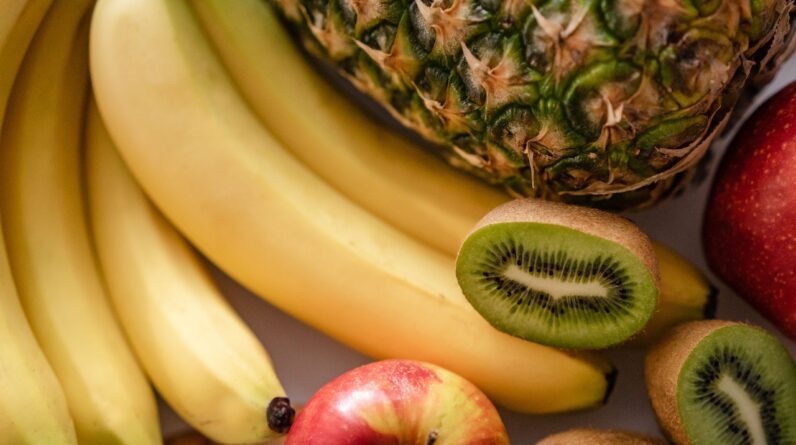
Weight loss: a topic that has seen its fair share of debates. One such discussion centers around the importance of diet versus exercise. Do you think sweating it out in the gym is the key to shedding those extra pounds? Or perhaps you lean towards the belief that your plate holds the power? Well, let’s delve into the facts and discover why diet is often deemed more crucial than exercise when it comes to weight loss.
Introduction to Weight Loss: Diet vs Exercise
Weight loss, in its simplest terms, is a result of burning more calories than you consume. There are two primary strategies to reach this caloric deficit: reducing the amount you eat or increasing physical activity. But, which approach holds more weight in this balancing act?
The Science Behind Weight Loss
How Does Our Body Lose Weight?
When your body needs energy, it starts breaking down the foods you eat, stored fats, or muscle tissue. Your body prefers to burn through the calories you’ve consumed before moving onto stored fats. The result? Weight loss.
The Role of Calories in Weight Loss
In the context of weight loss, calories aren’t our enemies; they’re a measure of energy. The key is understanding how to balance the energy you consume with the energy your body uses. To lose weight, you need to create a calorie deficit, which means burning more calories than you consume.
The Importance of Diet in Weight Loss
Role of Diet in Calorie Control
Food is the primary source of calories. Therefore, tweaking your diet is arguably the most straightforward method to alter your caloric intake. By opting for a nutrient-dense, calorie-light diet, you can create a significant calorie deficit that promotes weight loss.
Impact of Nutrient Quality on Weight Loss
The quality of your diet also matters. Nutritious, whole foods help you feel full longer, reducing the temptation to overeat. Furthermore, such foods provide essential nutrients that support overall health during your weight loss journey.
The Role of Exercise in Weight Loss
Exercise and Calorie Burn
Exercise increases calorie expenditure, contributing to the calorie deficit equation. However, it’s crucial to note that intense workouts often stimulate appetite, potentially leading to compensatory eating post-exercise.
Why Exercise Alone isn’t Enough?
While exercise boasts many health benefits, relying solely on it for weight loss can be challenging. It’s much easier to consume 500 calories than to burn them. Therefore, without dietary changes, achieving a calorie deficit through exercise alone can be an uphill task.
Comparative Analysis: Diet vs Exercise
Case Studies: Diet vs Exercise
Numerous studies have indicated that diet plays a more significant role in weight loss than exercise. A study published in the journal “Obesity” found that people who focused on dietary changes lost more weight than those who focused solely on exercise.
Incorporating Diet and Exercise for Optimal Health
How to Maintain a Healthy Diet
Maintaining a healthy diet isn’t just about calorie restriction; it’s about making sustainable changes to your eating habits. This might involve opting for whole foods over processed ones, eating more fruits and vegetables, or cutting down on sugar.
Sustaining Regular Exercise
Regular exercise, though less impactful on weight loss, is crucial for overall health. It strengthens the heart, boosts mood, and improves stamina. Hence, it should be a part of everyone’s routine, not just those aiming for weight loss.
Synthesized Verdict: Balance is Key
While diet appears to have the upper hand in the weight loss battle, it’s essential to remember that exercise offers numerous health benefits that diet alone can’t provide. It’s not an ‘either-or’ situation, but rather a balanced mix of both that leads to optimal health and sustainable weight loss.
Conclusion
As we wrap up our conversation, we find that while diet has a greater impact on weight loss, discounting exercise isn’t the solution. Instead, a delicate balance between the two – a healthy diet and regular exercise – holds the promise for long-term weight loss success and better health. Weight loss is a complex process that involves more than just diet and exercise. It requires a comprehensive understanding of how your body works, and a committed and sustainable approach to both eating healthily and staying active. While diet does have a more significant role in weight loss, the benefits of exercise extend beyond just burning calories. So, for a healthy, balanced approach to weight loss, make sure to combine a nutritious diet with regular physical activity. After all, it’s not just about losing weight, but about gaining health.
Frequently Asked Questions
1. Is diet more important than exercise for weight loss? Yes, diet generally plays a more significant role in weight loss compared to exercise, primarily because it’s easier to create a calorie deficit through diet.
2. Can you lose weight by dieting alone? Yes, it’s possible to lose weight through diet alone by maintaining a calorie deficit. However, including exercise in your routine can provide additional health benefits.
3. Is it possible to lose weight with exercise but without dieting? While it’s possible, it’s generally more challenging to create a calorie deficit through exercise alone.
4. How can I maintain a healthy diet? A healthy diet involves eating balanced meals rich in fruits, vegetables, lean proteins, and whole grains, and limiting the intake of processed foods, sugars, and unhealthy fats.
5. What kind of exercise is best for weight loss? A combination of cardio exercises for calorie burn and strength training to build muscle is often recommended for weight loss. However, the best exercise is one you enjoy and can stick to consistently.
6. Why does exercise stimulate appetite? When you exercise, your body uses more energy, which can increase your appetite as your body tries to replenish its energy stores.
7. How much should I exercise for weight loss? The American Heart Association recommends at least 150 minutes of moderate-intensity aerobic activity or 75 minutes of vigorous aerobic activity per week, along with muscle-strengthening activities two or more days a week.
8. Can I eat anything if I exercise regularly? While regular exercise increases the number of calories you can consume without gaining weight, the quality of your diet still matters. Nutrient-rich foods fuel your body better than empty-calorie foods.
9. Are all calories equal when it comes to weight loss? While a calorie is a calorie in a thermodynamic sense, not all calories have the same impact on satiety, nutrient intake, and metabolic response, which can all affect weight loss.
10. How do I create a calorie deficit for weight loss? A calorie deficit can be achieved by consuming fewer calories, increasing physical activity, or a combination of both. It’s essential to make sustainable changes that can be maintained long-term.
To conclude, weight loss is a complex process that involves more than just diet and exercise. It requires a comprehensive understanding of how your body works, and a committed and sustainable approach to both eating healthily and staying active. While diet does have a more significant role in weight loss, the benefits of exercise extend beyond just burning calories. So, for a healthy, balanced approach to weight loss, make sure to combine a nutritious diet with regular physical activity. After all, it’s not just about losing weight, but about gaining health.







